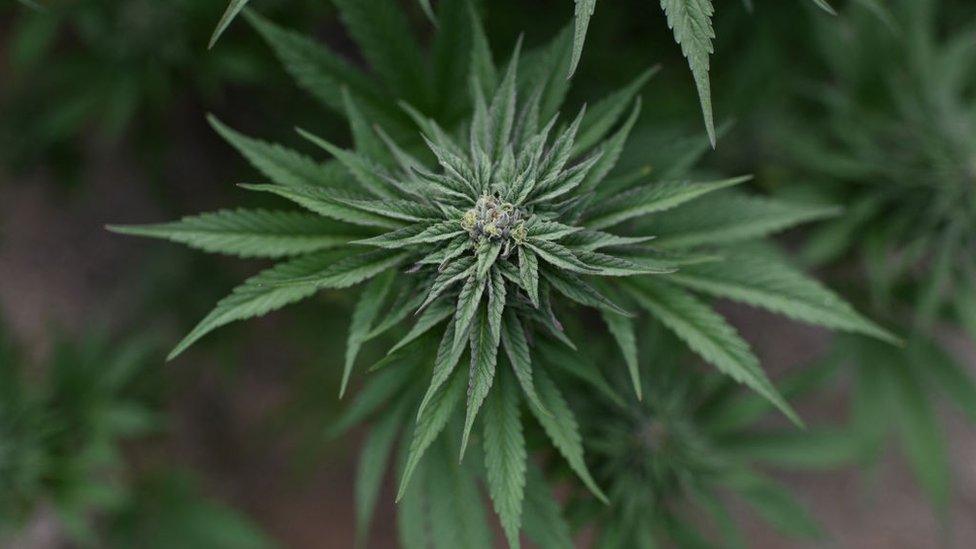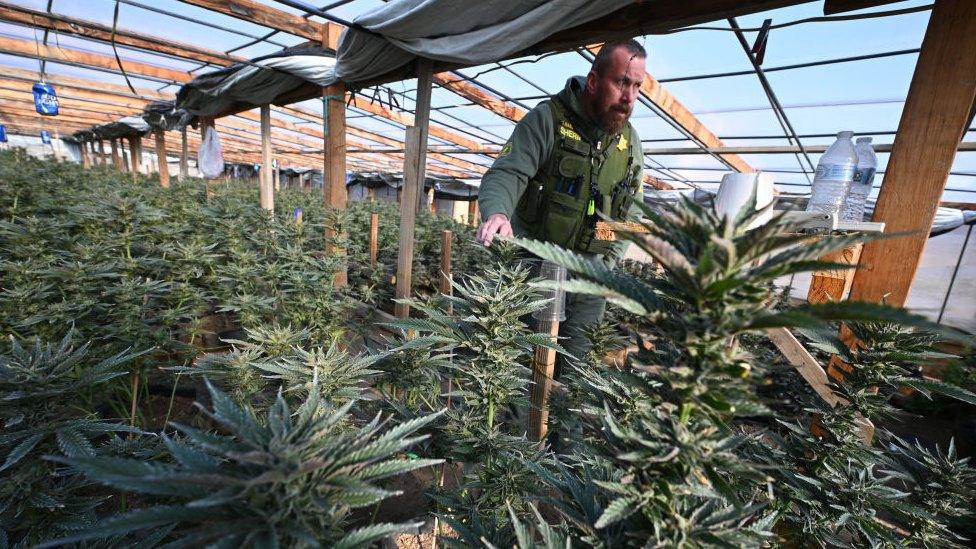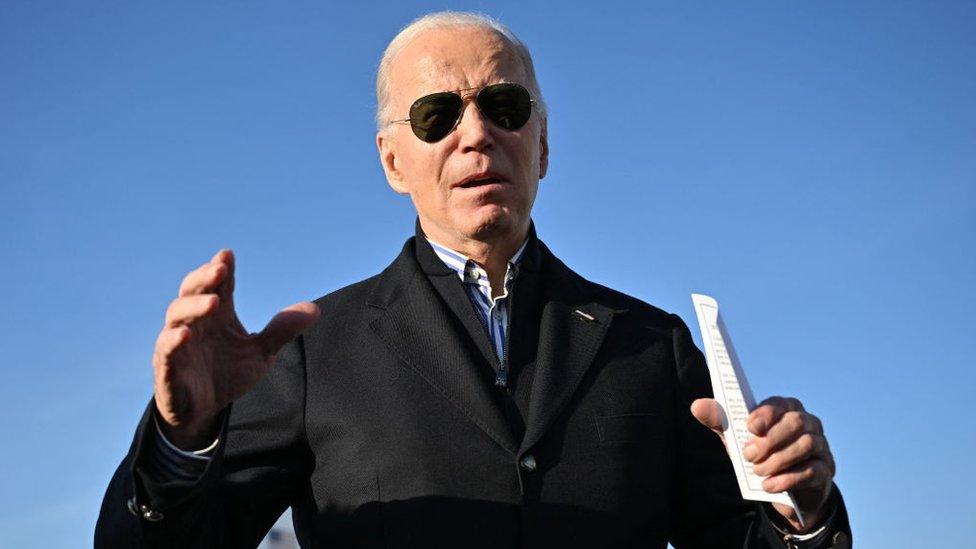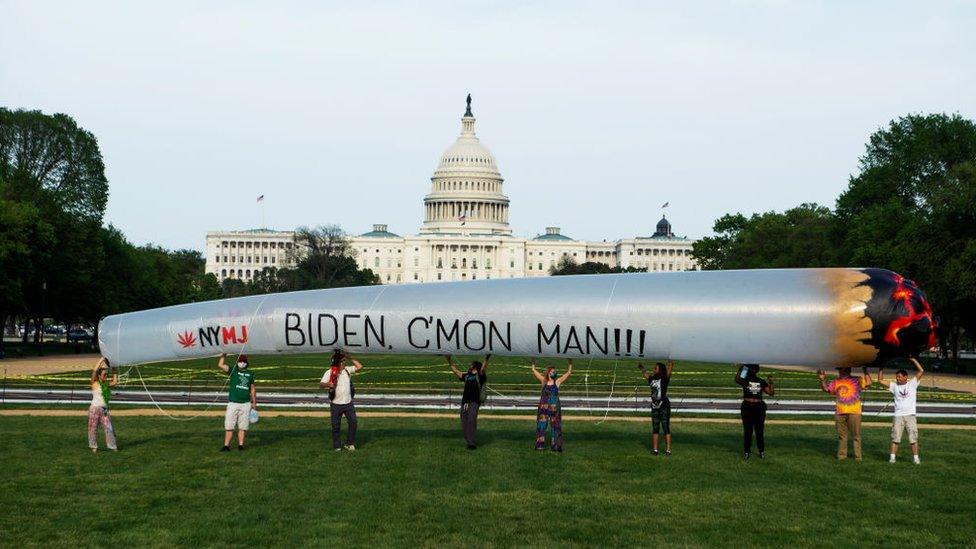Biden endorses cannabis reclassification, slamming 'failed approach'
- Published

President Joe Biden endorsed moving away from 'our failed approach to marijuana'
The US justice department has formally moved to reclassify cannabis as a less dangerous substance - the country's biggest drug reform in over 50 years.
President Joe Biden hailed the step as "an important move toward reversing longstanding inequities".
It's a turnaround for a politician who three decades ago crafted a tough crime bill that's now politically divisive.
But it could help Mr Biden, a Democrat, shore up wavering support among younger voters in an election year.
Thursday's plan does not legalise marijuana outright for recreational use as is currently the law in 24 US states and the District of Columbia. Thirty-eight US states have also legalised marijuana for medicinal purposes.
"Far too many lives have been upended because of our failed approach to marijuana," Mr Biden said on Thursday on X, formerly Twitter, in a departure from his usual reticence on cannabis policy.
"I'm committed to righting those historic wrongs. You have my word."
The administration's proposal would shift pot from a Schedule I controlled substance, its most restrictive category, to Schedule III.
The federal government would no longer view the drug alongside other dangerous and habit-forming substances like ecstasy, heroin and LSD.
Drugs in the Schedule III category are seen as having a low or moderate risk of abuse. They include anabolic steroids, ketamine and testosterone.
The federal government has retained its Schedule I classification for cannabis since Congress first enacted the Controlled Substances Act in 1970.
Rescheduling would probably stimulate the legal cannabis industry by enabling easier access to traditional banking services and outside investments.
The move could also provide a crucial boost to the president as he struggles to rally young and minority voters behind his re-election bid, particularly amid anger over the war in Gaza.
As a senator, Mr Biden authored a 1994 crime bill that is often blamed for mass incarceration, disproportionately of black people, over drug offences.
As a candidate in 2020, Mr Biden promised to decriminalise the use of cannabis and said he did not believe anybody should be behind bars on charges of simple possession or small-scale use.
But he continues to oppose full-scale legalisation. His administration has instead granted two rounds of mass pardons for people with federal cannabis possession convictions.
"No-one should be in jail just for using or possessing marijuana," he wrote on X on Thursday, nodding to his previous actions.
"Right now, marijuana has a higher-level classification than fentanyl and methamphetamine - the two drugs driving America's overdose epidemic," he added. "That just doesn't add up."
Thursday's formal rule proposal to the federal register kicks off a lengthy approval process, beginning with a 60-day public comment period, before the change can take effect.
- Published1 May 2024

- Published22 December 2023

- Published7 October 2022
